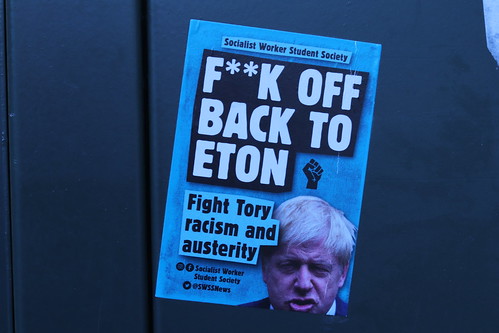Russian anti-war candidate Boris Nadezhdin banned from election
Boris #Boris

An anti-war candidate who gathered unexpected momentum has been banned by Russia’s electoral authority from running against Vladimir Putin in the carefully managed presidential elections in March.
The central election commission said it had found “irregularities” in over 9,000 of more than 100,000 signatures of support submitted by Boris Nadezhdin. That figure was three times higher than the allowable 5% error rate and provided grounds for the commission to disqualify him.
Commenting on the decision, the Kremlin said it had “nothing to add” and that the commission followed all the established rules.
Wednesday’s decision was widely expected and comes after a election commission working group claimed on Monday it had found 15% of the supporters’ signatures he submitted to be invalid. Last week, the commission’s deputy chair, Nikolai Bulaev, said it had found 11 “dead souls” among the signatures.
Nadezhdin, a veteran politician who has associated with Kremlin insiders and the opposition to Putin, has been waging a last-minute campaign to get on the ballot for the election, with thousands of Russians standing for hours in the freezing cold to add their signature in his support.
Nadezhdin said in his election manifesto that Putin had made a “fatal mistake by starting the special military operation” in Ukraine, the Kremlin’s preferred term for its invasion. “Putin sees the world from the past and is dragging Russia into the past,” he said.
He said on Thursday he would challenge the ruling against his candidacy in the country’s supreme court.
“I do not agree with the decision of the central election commission … Participating in the presidential election in 2024 is the most important political decision in my life,” he wrote on his Telegram channel. “I am not backing down from my intentions.”
Nobody expected Nadezhdin, 60, to win even if he was allowed to participate, given Putin’s total dominance and control of the state. But his campaign has captured people’s attention because of his outright opposition to the war in Ukraine.
Many supporters recognised that although he had past ties to the government, they had no other candidate to voice their dissatisfaction with the war.
He also received support from allies of Alexei Navalny, who have mostly been jailed or driven from Russia. “Standing in line and supporting Nadezhdin is a safe way to protest and we support that,” said Ruslan Shaveddinov, a close ally of Navalny.
Russian state media ramped up its smear campaign against Nadezhdin in recent weeks, which underlined the Kremlin’s concern about the unexpected show of support for a politician who was previously unknown among the general population.
Political analysts have argued that Nadezhdin’s growing support and his attempts at outreach to anti-war Russians who have fled abroad had made his candidacy politically embarrassing for the Kremlin.
Another openly anti-war candidate, Yekaterina Duntsova, has already been disqualified by the elections commission, which refused to accept her nomination because of alleged errors in her paperwork, including spelling mistakes.
She and others have shifted their grassroots organising effort to support Nadezhdin,
Russia’s electoral commission has so far registered four candidates, including Putin, for the polls.
Putin is set to secure another six-year term in the 15-17 March vote, which would keep him in the Kremlin until at least 2030. If he remains in power until then, his tenure will surpass even that of Joseph Stalin, who ruled the Soviet Union for 29 years, making Putin the longest-serving Moscow leader since the Russian empire.
Putin has won previous elections by a landslide, but independent election watchdogs say they were marred by widespread fraud.